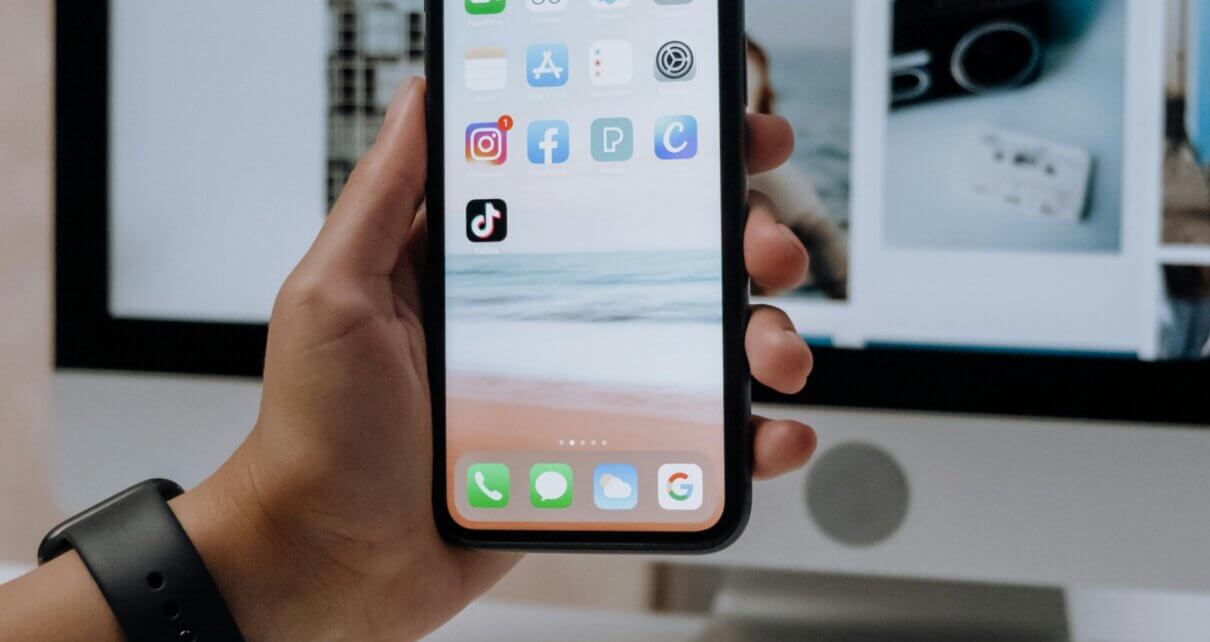It’s no secret that technology has taken over, and as digital natives, Gen-Zers are well aware that it has invaded many different aspects of our day-to-day lives, dating being one of them.
Dating apps are widely recognized as one of the leading methods of meeting potential partners. However, there are specific issues to consider before setting up your profile. While there are many success stories in the realm of Tinder, Hinge, and Bumble, let this serve as a cautionary tale of the implications of the online dating world. From lack of authenticity, catfishing, to option paralysis, these apps are leaving Gen Z burnt out and pushing back.
A common issue with dating apps is the idea of it being inauthentic, a valid concern considering most users are mindlessly scrolling and swiping. It goes without saying that meeting someone through mutual friends or throughout the course of our daily routines is way more organic and authentic and maybe even less of a stressful process.
However, aside from a lack of organically building relationships, there is another aspect of inauthenticity taking place on online dating platforms. In an article for CNBC by Sawdah Bhaimiya titled, “Gen Z is Ditching Dating Apps to Meet People In Real Life. Here are 4 Top Tips,” Bhaimiya explained that the companies running these apps are more focused on making money rather than the results of our experiences.
Author and licensed therapist, Jeff Guenther, explained that users become hooked by “micro-rejections,” such as ghosting, which in turn, messes with mental health and self-esteem. Gen Z has become hyper aware of the ulterior motives of those who are running dating apps and are taking strides to meet people in a more traditional way; however, since we’ve been raised on technology, it seems to be more difficult for us to approach people and be vulnerable face to face. (See Bhaimiya’s article for some tips on how to meet people in real life!)
A scary thought within the online dating world is that the companies who neglect to address that they are profiting from keeping you single aren’t the only ones on these apps who may be lying. Abby Vesoulis explained in her article, “Paradise for Predators,” that, “predators use these dating apps as a hunting ground for vulnerable victims.” A frightening reality, but one you must face when deciding whether or not to set up your profile.
While catfishing has been around for some time now, with advancements in artificial intelligence (AI), it is easier than ever to deceive people online with developments such as ChatGPT, Midjourney, and Dreamstudio. While these softwares are already being used to cheat and trick people in settings such as the office and classrooms, the consequences become much darker as they infiltrate dating apps.
Dr. Jessica Barker, award winning global leader with over ten years of experience working in the human side of cyber security, explained in her book, “Hacked: The Secrets Behind Cyber Attacks” that AI catfishing is expected to continue and increase. She also stated that, “the reasons for this can range from people simply seeking to improve their chances of success on the apps to deeply manipulative and damaging scams.” For reasons of safety, the impact of catfishing and AI is an important aspect to review before joining the online dating world.
One final issue to consider is option paralysis. The option paralysis phenomenon, according to psychologist Barry Schwartz, makes it harder to make decisions based on having more rather than fewer options and often leads us to feel unsatisfied regardless of our choices.
Arlin Cunic explained in his article, “Option Paralysis in Online Dating,” that we tend to enter, “endless cycles of swiping and scrolling without ever making a real connection.” This is a real concern for those who join dating apps with the intention of finding a partner. Too many options is proving to overwhelm us and blur our judgment. Cunic further goes on to explain that a common example of option paralysis is presented as a desire to, “keep your dating options open and never commit to one person because you’re afraid of missing out on someone better.”
In the article, Marisa Cohen, relationship expert and licensed marriage and family therapist, explained that mindfulness and self-regulation are important to overcome option paralysis. This is great to consider for ourselves; however, can we trust others to self-regulate and practice mindfulness?
Monmouth University senior finance student, Michelle Alves, explained her concerns, “With dating apps, we are constantly searching for ‘the next best thing’ when half the time the pictures are edited and filters are applied to give the illusion that people are meeting unrealistic beauty standards. So, as we look for the next best edited picture, we fail completely to even consider what we are looking for in a partner in regards to values and personality.”
Similarly, Erin Coughlin, senior health studies student explained that, “mindlessly scrolling through dating apps not only interferes with the ability to form a true connection that isn’t only based on outward appearance, but also is one of the main factors, in addition to social media, that cause relationships to fail these days. People believe there are endless options out there and tend to choose to move onto the next person or give up so easily in their relationships instead of working through issues because of this illusion.”
With this information, if you are still looking to join the world of online dating, it is important to consider the impact of inauthenticity, the potential dangers and scams, and option paralysis, that has ultimately led Gen Z to push back against these apps.




